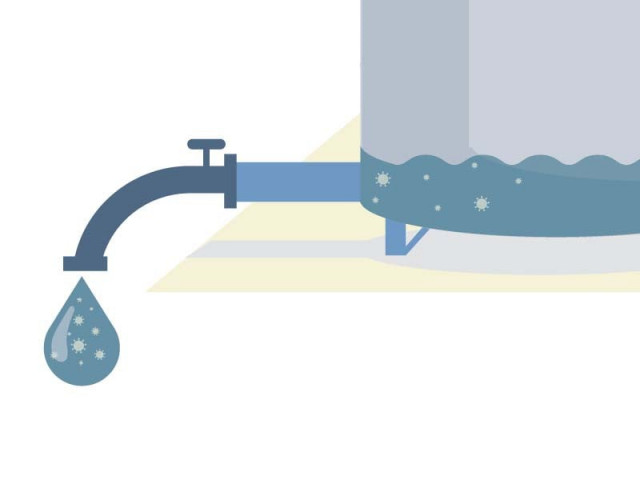Fund shortage hits rural water projects
Construction of Aab-e-Pak centres for thousands of villages delayed

Projects launched for supplying clean water in districts across Punjab are facing delays due to the freezing of funds.
While the authorities appear to be focusing on improving the situation in the big cities like Lahore, Faisalabad and Rawalpindi, the conditions in the rural areas remain unaddressed.
In view of the risk of intestinal and skin diseases caused by contaminated water, the Punjab government had started construction of Aab-e-Pak centres to supply clean water to about 10.5 million people of more than 25,000 villages.
However, the work launched under the Aab-e-Pak Authority has stopped due to freezing of funds.
The preceding provincial government had created the Aab-e-Pak Authority to provide clean water.
In the first phase, 1,235 Aab-e-Pak centres were to be built in cities and villages in the Lahore, Sargodha, Dera Ghazi Khan, Multan, Sahiwal and Faisalabad divisions at a cost of about Rs4.5 billion. But only 900 centres could be built.
Due to shortage of funds, the project has been delayed since June last year.
The second phase of the project will cover more than 1,000 villages across the province.
According to sources, work to build 110 Marakaz-e-Aab at a cost of Rs5 billion has also been delayed till next year.
However, the Aab-e-Pak Authority’s former chief executive officer Zahid Aziz, said the work on phased projects to provide clean drinking water to the people was also being pursued under the local government department, Punjab city programmes, Punjab Rural Aab Rasani Programme and intermediate cities programme.
Speaking to The Express Tribune, he said water should be used with care, so that the reservoirs could be protected for future generations.
Lahore Water a d Sanitation Agency (WASA) Managing Director Ghufran Ahmed said the World Health Organisation (WHO) had set a standard of 95 per cent of water samples collected from a city to be found safe in tests.
“Our water testing laboratory is approved under the ISO 1725 standards,” he added.
The official said chlorinators were also being used at tube wells to provide clean water to the people after eliminating germs. He said the complaints of contaminated water were also resulting from citizens using rotten pipelines and dirty tanks.
With the cooperation of the Punjab government, the old decayed pipelines are being replaced in a phased manner, which will improve the water quality.
He also appealed to the citizens to avoid wasting water.
According to sources, WASA is providing water to a population of eight million, while more than 4.4 million residents of the provincial capital are getting water from other sources.
About 6,000 kilometres of water supply lines in the city have completed their viability period, of which about 40 per cent have been replaced.
The rest of the damaged pipelines could not be replaced due to non-availability of funds. The contamination of water in the damaged pipelines is posing a health risk to the citizens of the affected areas.
Published in The Express Tribune, March 22nd, 2023.


















COMMENTS
Comments are moderated and generally will be posted if they are on-topic and not abusive.
For more information, please see our Comments FAQ